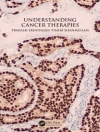This book, which derives from an initiative of the Education Committee of The International Society of Arthroscopy, Knee Surgery and Orthopaedic Sports Medicine (ISAKOS), addresses all aspects of elbow arthroscopy. Anatomy is thoroughly introduced, referencing safe portals and describing techniques to minimize risk of complications. Subsequent chapters focus on the use of arthroscopy in a range of conditions, including osteochondritis dissecans, stiff elbow, epicondylitis, elbow instability, and elbow fractures. Guidance is provided on diagnosis and indications for arthroscopy, and arthroscopic technique is clearly detailed. A key chapter describes complications and how to avoid them. The authors are experts and pioneers in the field from North America, Australia, and Europe who have in common the ability to teach complex procedures in a simple way. This book will be an invaluable aid for the developing surgeon and an excellent reference for the experienced surgeon.
Table of Content
Introduction.- Anatomy and portals.- Arthroscopic Technique.- OCD and loose bodies.- Elbow arthroscopy in stiff elbow.- Epicondilitis.- Comparison between open and arthroscopic technique in stiff elbow.- Elbow arthroscopy and instability.- Endoscopy around the elbow.- Elbow arthroscopy in elbow fracture.- Elbow arthroscopy complications.- Elbow arthroscopy in the future.
About the author
Luigi Adriano Pederzini, MD, is Chief of Orthopaedic and Arthroscopic Surgery at New Sassuolo Hospital, Sassuolo, Italy, having previously been Chief of the Arthroscopic Center at Casa di Cura, Villa Fiorita, Sassuolo-Modena, Italy. He is an active member of ESSKA and ISAKOS and has served on the ESSKA and ISAKOS Arthroscopy Committees. Dr. Pederzini is also a long-term member of the Italian Arthroscopic Association and served as its President from 2005 to 2007. He is a member of the ISAKOS Education Committee 2011-2015 and the ISAKOS Board of Directors 2011-2015, as well as Chairman of the ESSKA Elbow and Wrist Committee 2012-2014. Dr. Pederzini is the author of more than 75 papers regarding wrist, elbow, and knee arthroscopy. He is a sought-after lecturer, having been an invited speaker at many international meetings organized by ESSKA and ISAKOS.
Marc Raymond Safran, MD, is a Professor in the Department of Orthopaedic Surgery, Stanford University, Stanford, California, where he is Associate Director of Sports Medicine and Director of the Sports Medicine Fellowship. Dr. Safran is currently also Chief Orthopaedic Consultant to the Women’s Tennis Association (WTA), Professional Women’s Tennis Tour. In addition he is Head Team Physician, Notre Dame de Namur University, Belmont, California. His previous posts include Chief, Shoulder and Elbow Service, Department of Orthopaedic Surgery, University of California, San Francisco. Dr. Safran is a Fellow of the American Academy of Orthopaedic Surgeons and a Board Member At Large of the American Society for Shoulder and Elbow Surgery. He is current Treasurer, Board Member, and Chairman of the Program Committee of ISAKOS. Dr. Safran is also a Board Member and Chairman of the Council of Delegates Committee for the American Orthopaedic Society for Sports Medicine (AOSSM). He is the author of 132 articles in peer-reviewed journals as well as more than 100 book chapters.
Greg Bain, MBBS, FRACS, FA (Ortho) A, Ph D, is Associate Professor in the Department of Orthopaedics and Trauma, Discipline of Anatomy and Pathology, University of Adelaide, Australia. He is a Senior Visiting Orthopaedic Surgeon at the Royal Adelaide Hospital and the Modbury Hospital, South Australia, and also works in private practice, exclusively on upper limb orthopaedic surgery. Dr. Bain is a past president of the Shoulder and Elbow Society of Australia and is current Deputy Chairman of the Upper Limb Committee of ISAKOS. He is Deputy Editor of the
Journal of Wrist
Surgery and an editorial board member for the Journal of Techniques of Hand and Upper Limb Surgery and has also been an Associate Editor of the American Journal of Hand Surgery. He has published more than 80 peer review publications identifiable on Pub Med and 30 chapters in textbooks on disorders of the upper limb.












